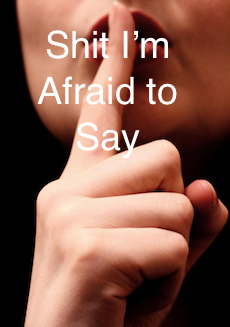 When I was a little girl my mom did a very good job of teaching me to see things from different points of view. I would ask her challenging questions about the way the world worked and she would answer to the best of her ability in a way that taught me that life isn't black or white. "Think about it from their point of view." she would often respond when I would ask why a certain group of people acted a certain way. And she would point out how some people were raised differently, or how their life circumstances gave them a different point of view than I had. And my mind would expand from it's tiny little center of judgement to a greater acceptance of our many differences. Unfortunately for our country, not everyone had a mom like mine. It seems like every year we are increasingly divided. Red states vs blue states. Liberals vs conservatives. Pro-choice vs pro-life. Pro-vax vs anti-vax. We are pitted against one another as if our differing ideologies are insurmountable. We become the "other", and the judgements rain down in online comments where we make bruising accusations about the other's intelligence and sanity. This polarizing reminds me of my experience with gangs growing up on the Navajo reservation. As a teenager I was friends with people from different gangs, and I flitted back and forth among my various friends without worrying about who was wearing what color. One day this disregard for differences seemingly led to the death of several of my friends at a party. A friend I had invited showed up, and it turned out he was from a rival gang, which I hadn't realized when I invited him. There was fighting and eventually gunfire. Two young men ended up dead, and two would spend many years of their lives in prison. I felt a terrible sense of guilt for this. When people die we often find ways to take on their deaths. The things we could have done differently that might have stopped it, may have led to a different outcome. I retreated into myself, and it took me many years to recover some semblance of my open-minded, easy going nature that I felt had led to those deaths. Since that time many more have died in gang related violence on the Navajo Nation. The saddest aspect of it all is that most of these gang members are from the same tribe. Some are cousins or share the same clan. They grow up angry and hurt because of the results of the horrific systematic genocide and racism that has been inflicted upon indigenous people for generations. But instead of taking their anger out on the system, they take it out on each other. What an effective way to control people. Red vs blue. Hillary vs. Trump. Distract, distract, distract. Pit us against one another so that we are so engaged in fighting each other that we forget who we are really angry at. I have to admit I have had a hard time understanding why anyone would support Trump. My mother is much better than I am at maintaining an objective point of view. My ire goes up when I see anyone bullying anyone else. I was picked on too. I remember one day, when I was very little, a group of boys had gathered around a puppy in our schoolyard. They were shouting at it, and chasing it with sticks and rocks. I was a very shy, withdrawn little girl at this point, and struggled to speak above a whisper in class, but when I saw this puppy it reminded me of times that I had been picked on and I was angry. "Stop it! Leave him alone!" I yelled at them, and they were startled enough to stop. Suddenly I discovered that I had allies. My standing up for the puppy inspired other kids to stand up for it too, and afterwards we gathered around him, speaking to him in soothing voices and petting him until it's tail wagged and he forgot the abuse he had just narrowly escaped. The mean boys left and for that moment I felt a sense of power that I had never had before. Everything about the Trump campaign has brought back that same sense of indignant injustice I had of seeing a puppy getting kicked by bullies. "How can anyone vote for this mean man?" I kept asking myself after watching clips of his speeches and seeing him invoke violence and hatred and mean-spiritedness in the crowd. The day he made fun of the disability of a reporter tipped me over the brink of understanding. How could people in my Down syndrome community supoort this man? I could not understand it. But recently my husband told me a story that helped me to wrap my brain around it. One of the fathers in his group was grappling with who to vote for. He is a conservative, and he knows that whoever wins the election will have a huge impact on the supreme court. He has a little girl with Down syndrome and he doesn't like the way that Trump talks about women or people with disabilities, but for him the alternative has such terrible ramifications that he can't decide what to do. Now this I can understand. While Hillary Clinton's policies and idealogies mostly coincide with my own, and her history of defending disability rights gives me great hope for my son's future if she were to win today's election, I have struggled with my concern over some of her actions. Even as I type this thousands of water protectors are gathered at Standing Rock in North Dakota, trying to stop the building of a huge pipeline that will destroy their sacred lands and endanger their water supply. President Obama has put a temporary halt to the pipeline, but he has not stopped it. It is as if he is hoping that the protestors will go away and he can sneak out of the presidency without anyone noticing how little he has done to help preserve the environment. He rode in on the promise of hope and change and saving the earth, and he rides out with American oil and gas production at an all time high, and very little of those promises fulfilled. The woman who is hoping to come riding in after him is also doing nothing to stop the Dakota Access Pipeline. Whatever lip service they might give to the environment and indigenous rights is just that, lip service, and it angers me to no end. I feel even more betrayed that they are from the party that readily admits that global warming is a real and present danger. How could they do this to us? Why are we being betrayed by the people who are supposed to represent us? And this is where I find the common bond that I had been struggling to see. Republicans, Democrats, we are not so different. Mostly we want the same things, with some minor differences. We want our friends and families to be safe, for our freedoms to be protected and for our government to look out for our best interests and otherwise stay out of our business. And none of us is getting our needs met. If we could stop pointing fingers at one another for a moment and come together, we could stop those mean boys from kicking that puppy. But it is much easier to point fingers at one another, to feel that we are superior in our ideologies. Just like those gangs that I hung out with in high school, we have been played so well that we are attacking each other instead of the system that has failed us. When our own government blatantly violates it's own rules, like ignoring tribal treaties and using violent force against peaceful protestors, then it doesn't really matter which puppet leader we elect. As long as their strings are controlled by corporate interests, we will continue to see our environment and our rights eaten away. There is this old saying, "Together we stand, united we fall." Today that is an especially important reminder. We have allowed our petty differences, our "othering" to blind us to the real problems that are plaguing our economy, our environment and our freedoms. Together we must find common ground, and we must stand together to stop this great evil. We cannot let mega-corporations bully us any longer. We must protect our water. We must protect our land. We must protect each other. I don't care if you are blue or red or purple, you are human, and you can change the world, together with me. It starts with voting. Today, on November 8th. The democratic system might be terribly broken but at least we still have it. Do not let the bullies win. If your heart cannot let you vote for Trump or for Hillary, vote for someone else, someone you do believe in. They always tell us that third party candidates can never win, but that's only because we believe them. Vote for the people you believe in, and for the things that matter most to you. And then stop blaming the other side, and start a conversation. Ask "How can we work together to make the world better?" I believe in you. And I believe in me too. Wherever there is an attempt at greater understanding there is tolerance. And where there is tolerance there is peace. And where there is peace there is greatness. Let us all be great.
0 Comments
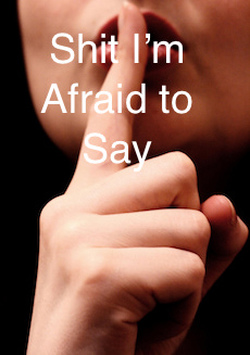 Every year starting in November I join the ranks of all the other wistful writers who hope that signing up for National Novel Writing Month, aka Nanowrimo, will turn them into a novelist. This year I've barely had time to write Facebook status updates much less anything resembling a novel. And I know that signing up to write 50,000 words in a month isn't going to change that. So I've decided that instead of writing a novel, I'm going to let out all of the things that I've held back on writing all of these years because I've been afraid to hurt someone's feelings, or to reveal the shitty person I really am. You know what? I just turned 40. My life clock is ticking in a serious way and I don't have time to hold back just because you can't take it. So here goes, day 1, here's some shit I'm afraid to say: The fact that my son has Down syndrome sucks. I put a brave face on it because I don't want to reinforce all of the negative stereotypes that are causing people to abort Down syndrome out of existence, but the truth is, I hate that my son has to work so much harder than everybody else just to reach the basic milestones that other people take for granted. I hate to admit it but I am a competitive mom. How well my kids are doing feels like a reflection on me. I've put aside my career for years to help these little fuckers be the best they can be, and for what? With Down syndrome it doesn't matter how much of a rockstar mom I might be, it's going to take my kid longer to accomplish things, and he probably will never be able to accomplish some of the most basic skills in life, like driving a car or having a family of his own someday. That's a hard pill for a competitive mom to swallow. Last month was National Down Syndrome Awareness Month, and I started off the month strong, posting positive little tidbits about my kid so people could see that his life is worth living. But then someone asked me about cognition. And I wanted to respond to her question. Because most people won't say it, but what they really want to know when they find out my son has an extra chromosome is "how stupid is having Down syndrome going to make him". And I know that I shouldn't say the word stupid. I know that no matter what word we use to describe it, that stupid is the word that we're really afraid of. That's why we don't use the word retarded or mentally handicapped anymore. And eventually we won't use the term cognitively impaired anymore because people will begin using that in a negative way too. Because no matter what we call it what we are actually talking about is intelligence, and intelligence is impacted by Down syndrome. In answer to the cognition question, I don't know what this will mean for my son. All I know that he will not be as intelligent as he would have been if he didn't have it. And that sucks. Which isn't to say that I don't worry about my other kid too, I just worry about him in a different way. I worry that he'll be a drug addict or an alcoholic or teen parent. I don't worry about that with Benny. So, in that way Down syndrome is great. But when I see other kids his age talking in full sentences or able to understand complex concepts like "Can you put this in the trash?" my heart breaks a little bit. At two, the differences aren't that obvious yet, so I know that my heart breaking now is nothing compared to how hard it will be as my son gets older. The differences will become more and more obvious. Right now he makes friends fairly easily, and none of them seem to mind that he only has a few words, or that his coloring skills are incredibly limited. There is a reason that anytime a person with Down syndrome accomplishes something that typical people do all of the time everyone makes such a big deal out of it. We are all terrified that our kids will never be able to do that. I have mixed feelings about it. Every time someone shares that a person with Down syndrome got a job or got married or went to the prom I feel torn. On the one hand it does give me hope that my son will be able to have these things too. On the other hand it makes me sad that these things are really not that extraordinary for typical people, and it seems that it's the most that I can hope for because my son has Down syndrome. But I'm still that competitive mom. I want my son to do extraordinary things. If he wants to be a surgeon or a novelist or fly to the moon, I want him to be able to do it. If he wants to get married and have kids, I want him to be able to do it. But the reality is that Down syndrome can be very limiting. In every single one of his cells my son has an extra 21st chromosome that fucks everything up for him. We do everything we can to offset it, he gets therapies and supplements and specialized medical care, but at the end of the day, it's still there, and it's still harder for him than it would be if he didn't have it. Which is why I love my son but I hate Down syndrome. So there, I said it. The shit that I didn't want to say. Tomorrow I'll say more shit I'm afraid to say. This whole month of November is going to be a shitstorm, and I'm not just talking about the election, but you can better believe it's going to come up, because that is some serious shit right there. Thank you for joining me. I apologize if I've offended your sensibilities with my cursing or my honesty, but I can tell you that it's only going to get worse. Feel free to ignore my posts altogether throughout the month of November, as I will be continuing on this cathartic journey of oversharing until the end of nanowrimo. If you are easily offended I will see you in December, when I will return to my regularly scheduled programming. 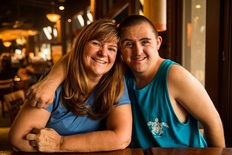 Reality show stars often use their fame for their own narcissistic purposes, like say, starting their own fashion lines or trying to run for president. But one woman is using her fame for another purpose; to bring awareness to Down syndrome acceptance and inclusion. But one woman is using her fame for another purpose; to bring awareness to Down syndrome acceptance and inclusion. Sandra McElwee, Sean’s mom and costar in the show “Born this Way”, has been advocating for her son Sean since he was 3 months old. She’s written books, presented all over the country and even signed up to participate in a reality show all for one sole purpose, to make the world a better place for people with Down syndrome. In this episode we caught up with Sandra to ask her about how the reality show stardom is impacting her family, her experience as a writer and presenter on inclusive education and how the show is contributing to her goals of inclusion and acceptance for all people with Down syndrome. We are so excited to release this episode on World Down Syndrome Day! Sandra has been such a pioneer for Down syndrome and her work presenting and writing about inclusive education has changed classrooms around the country. Please enjoy and share our latest episode of T21 Action! You can see more episodes of T21 Action on our podcasting site, T21 Action.weebly.com. And if you haven't seen "Born this Way" yet, here's a clip from Season 1, Episode 4 where Sean "golfs for a hot babe". MORE ABOUT SANDRA
Sandra Assimotos McElwee is an advocate for unborn babies with Down syndrome and created one of the first websites for parents with a prenatal diagnosis. Author of three books McElwee contributed to the books, "Gifts: Mothers Reflect on How Children with Down Syndrome Enrich Our Lives," and "You Will Dream New Dreams, Inspiring Personal Stories by Parents of Children with Disabilities." Married over twenty-two years to Sean's father, Rick , they enjoy traveling and participating in Sean's sports activities. A medical sales professional, McElwee's most important job is being Sean's mother. Sandra's website: www.whostheslowlearner.com Link to the 20 year study mentioned in the podcast: http://www.mcie.org/usermedia/application/6/inclusion_works_final.pdf 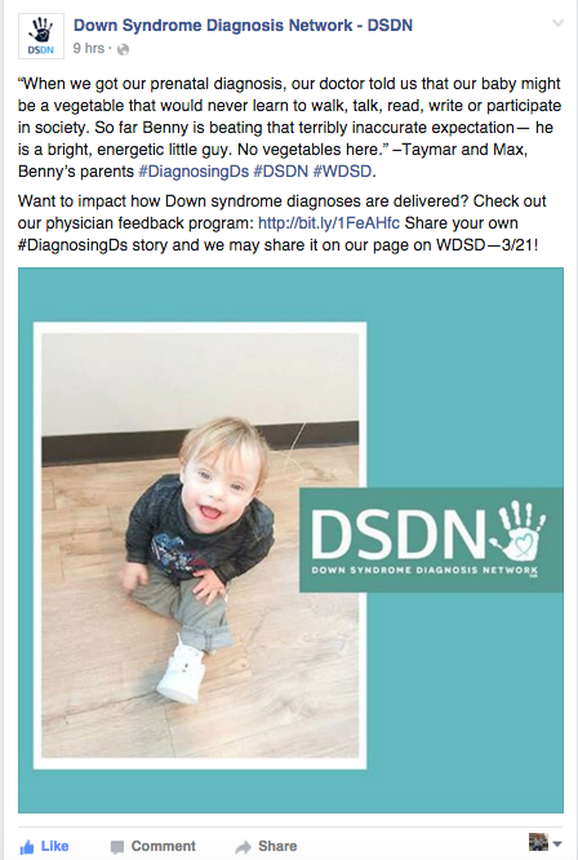 Benny was featured on the Down Syndrome Diagnostic Network page today! If you ever have any questions about Down syndrome, I am always happy to answer or to connect with someone who has received a diagnosis. There are a lot of misconceptions out there about Down syndrome, and the truth is that the majority of people with Down syndrome grow up to lead happy, fulfilling lives. In fact, in a survey of thousands of people with Down syndrome, 99% said that they were happy with their lives, and 97% said that they liked who they are. Compare that to the typical people you know. Unfortunately, with the negative stereotypes about Down syndrome and the increase in prenatal testing for it, most people with Down syndrome will never get a chance. In the US the abortion rate is around 67%. In Europe it is over 90%. When we got our prenatal diagnosis we were strongly pushed towards termination. While I am pro-choice, I am also appalled that government agencies consider these termination rates to be proof of success that they are "solving the problem" of Down syndrome. Not solving the problem by providing funding for more research to treat some of the issues that the extra chromosome can cause. Not solving it by helping families with more access to early intervention or by encouraging more inclusion in classrooms. Not solving it by providing more education, training and employment opportunities for adults with Down syndrome, or any other type of assistance. No, they are "solving the problem" by eliminating an entire population of people whose most recognizable trait is their honesty and ability to love unconditionally. It is appalling. And it starts with identifying and eliminating children with disabilities, but where does it end? When we are able to prenatally identify other traits we perceive of as negative will we consider it "solving the problem" to get rid of them too? Before I had Benny I didn't know anyone with an intellectual disability. I didn't have an awareness that people with special needs actually do have a place in our world. The more that I learn about people with special needs, the more that I realize that I missed out when I was growing up. I missed out on the opportunity to be less selfish, to be a kinder, more thoughtful and more confident person. These are the qualities that people with special needs bring out in their classmates, friends and families. I missed out because people with intellectual disabilities were put in institutions or taken out of the regular classroom and placed in special education classrooms. It would be a tragedy if our entire society misses out because those people will never be born. Don't miss out on the opportunity to get to know someone with special needs. It might just change your life.  The year before I conceived my son with Down syndrome I had two ectopic pregnancies and a miscarriage. Each time we had a failed pregnancy the OB told us that “this just happens” and that we “should keep trying”. We were not told that the methotrexate I was given to stop the ectopic pregnancies from growing depletes folate from the body. We were not instructed to take additional folate before trying to conceive again. We weren’t told that folate deficiency could lead to more ectopic pregnancies, miscarriages, failure to conceive or birth defects like Down syndrome. After my son was born with Down syndrome I began researching potential causes. I joined groups that talked about the medical aspects of Down syndrome, and the term MTHFR mutation kept coming up. Someone posted an article about how people with a certain type of MTHFR genetic mutation are unable to convert the synthetic version of folate, typically called folic acid, into folate. Instead, the folic acid plugs the cell walls and blocks the cells from being able to access folate in the body. The article listed a series of birth defects caused by this, and my heart stopped as I read the list.  Tongue tie. Photo by Janelle Aby, MD. Tongue tie. Photo by Janelle Aby, MD. I had never considered my older son to have any birth defects. He had a very serious tongue-tie, but because it didn’t prevent him from nursing I didn’t think of it when I was asked if I had ever had a child born with a birth defect. Now, I understood that the tongue-tie was in fact a birth defect. I had given birth to two children with birth defects. The more I read about MTHFR mutations, the more that my health problems, and health problems common in my family, began to make sense. My ongoing trouble with irritable bowel syndrome, both of my children born with an inability to process wheat or dairy properly, my siblings who began having health issues related to wheat sometime after the government passed a law requiring fortification of all wheat flour with folic acid, one cousin diagnosed with autism, another born with Spina Bifida…the more I looked at it, the more clear the picture was. I finally asked my doctor to be tested for an MTHFR mutation. My labs came back showing a whole host of issues. As my doctor read through the list he said “And you’re negative for MTHFR mutations.” I was shocked, and said, “Really? That’s so surprising!” He looked again, “No, I’m sorry, I misread. You actually have two copies of the C677T mutation. But it’s nothing to worry about.”
I’m not sure my doctor fully understood what this gene mutation really meant. And although it was merely confirmation of what I had already suspected, I was devastated. I sent an email to all of my family members to let them know that I had a genetic mutation called MTHFR and that they should get tested as it is a hereditary condition. I expected that they would be shocked and upset like I had been to find this out, but I didn't hear much of anything back. At this point I think most of them still have not gotten tested, and most of my family members who I've talked to don't seem to be overly concerned by this news for some reason. Only my cousins who have children with medical issues contacted me. “All I can think is motherfucker!” my cousin whose youngest son has autism wrote me. “Yep!” I wrote back, “Sure is!” I am just now starting down the path to learn more about what all of this means. I know that I can’t process toxins like other people; my body is just not able to filter them as well. This is a bummer for me, because I am old enough to have mercury fillings, I grew up surrounded by poorly managed uranium mining on the Navajo reservation and crop spraying during the summers in Illinois. I currently live in Colorado, a state that is fracking as fast as it can. The only good part about it is that I finally understand why I have had so many hidden health problems for so many years. Because I have two copies of the C677T gene mutation, I know for a fact that both of my sons have at least one copy. I haven’t had them tested yet to find out, but in the meantime I’ve taken all forms of synthetic folic acid out of our diet, and I’ve changed to a multivitamin that contains the natural form of folate - methylfolate. (Here's a list of prenatal vitamins for people with MTHFR mutations) I am not doing significantly better yet, and am still in the process of figuring out what I need to do to help my body now that I know this information. If you are struggling with infertility issues, have had a miscarriage or a child born with a neural tube defect, please ask your doctor to test you for an MTHFR mutation. And please share this information with anyone you know that is trying to conceive. Eventually I hope that prenatal vitamins containing synthetic folic acid are just taken off the market. But in the meantime, it’s important to get this information out. I just wish my doctors had told me about this years ago. It would have saved me so much heartache. 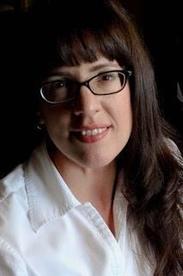 Not every doctor sees Down syndrome as a treatable condition. Many will dismiss symptoms that would be alarming in a typical child because it's "just part of the Down syndrome". Thankfully there are some doctors who realize that Down syndrome is treatable. We are lucky enough to have our son Benny in the care of one such doctor, the wonderful Dr. Erica Peirson. 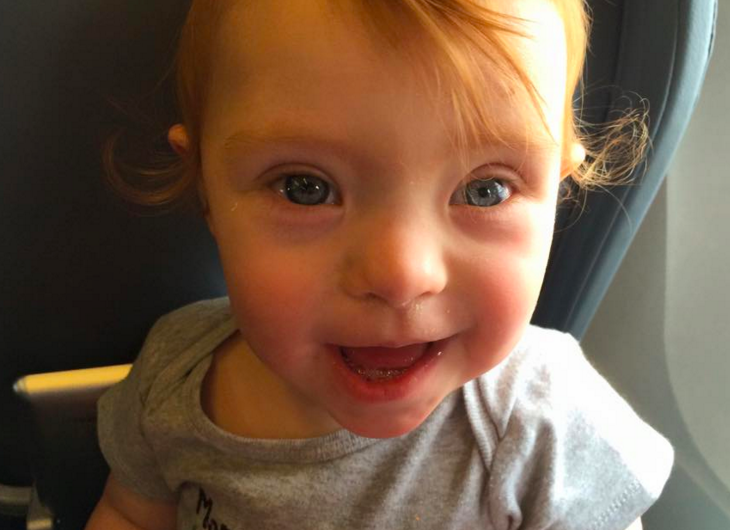 Since working with her to correct Benny's hypothyroidism we have seen him go from an infant with incredibly low muscle tone, near constant tongue thrusting and poor health to a strong little boy whose trisomy 21 isn't having such a huge impact on him anymore. Despite these obvious signs of congenital hypothyroidism as a newborn, Benny would still not have been diagnosed to this day if it weren't for Dr. Peirson. All of his other doctors would only look at his TSH and T4 levels, which were only slightly off. Dr Peirson looked at all of Benny's thyroid levels and discovered that his reverse T3 was off the charts. This meant that Benny wasn't absorbing the T3 into his cells. He was suffering from hypothyroidism just as much as if his T4 or TSH were high. I am so grateful that we discovered this fairly early on. My only wish is that we had found out even earlier. Untreated congenital hypothyroidism causes irreversible brain damage, and the longer you wait to treat it the worse it is. Unfortunately, many babies born with Down syndrome will suffer this avoidable brain damage because so many medical professionals will dismiss their obvious hypothyroid issues as being caused by their extra chromosome and fail to run all of the labwork necessary to identify and treat the issue. After witnessing the incredible transformation in my son and realizing how many babies born with Down syndrome are not benefiting from this information, I asked Dr Peirson if she would talk to me about these thyroid specific issues related to Down syndrome on our T21 Action podcast. The result is this truly amazing interview that I am so very proud of. I hope that you will listen to and share this podcast with anyone you think might benefit. 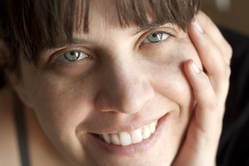 A few months ago my friend Rebecca called me and said "I have an idea." She wanted to create a podcast about Down syndrome. We decided to publish the first episode on October 21st, for Down Syndrome Awareness Month. For our first episode I interviewed our friend Elizabeth Jeub on her project "Know Us", a photo and story essay booklet for new parents in the Front Range Area. We talked a lot about the inspiration for her project, our experiences receiving a Down syndrome diagnosis, and what we wished had been done differently. Today we published our second podcast, an interview with Rebecca as she talks about preparing to teach her first birthing preparation class specifically for parents who have received a diagnosis. Please have a listen and share your feedback with us here or on t21action.weebly.com. This simple, natural fortification method for a high calorie infant formula helped my son Benny stay healthy and gain weight before his open heart surgery at four months old. Because my son had congenital heart failure due to his complete av canal defect he stopped gaining weight when he was about 6 weeks old. This was a terrifying time for us. We were unable to find a bottle he would take, and I was reluctant to give up breastfeeding, so I knew I had to find a solution that would allow us to continue breastfeeding while helping him gain the weight that he needed. Since he was burning more calories just with the effort it took to breathe, he needed a higher calorie milk. In order to keep him at the breast, I nursed him every 2 hours for 20 minutes while using a Supplemental Nursing System (SNS) filled with high calorie milk. We started at 24 calories and eventually increased to 26. Eventually we were able to get him to take a bottle by using a preemie nipple on a Dr. Brown bottle. In between nursing he was given as much as he could drink of an 8 ounce bottle of fortified milk. Often I could not pump enough milk in addition to what I was breastfeeding, so we supplemented with the goats milk formula listed in the table above. Using maple syrup to fortify breastmilk and the goats milk recipe was recommended to me by a highly respected Naturopath who specializes in the treatment of children with Down syndrome. She had used this with her own son who has Down syndrome as well as with other patients. At first I was hesitant to use maple syrup, but she pointed out that in comparison to the ingredients in commercially made formula, organic natural maple syrup is much easier for a young baby to digest. This turned out to be very true. My son became constipated and uncomfortable when we tried using any kind of commercial formula, which backfired on his weight gain since he wouldn't want to eat when he was constipated. With the maple syrup and goat milks formula my son had no health problems caused by the fortification. I also worked with a doctor who specializes in high risk infant feeding, and that is how we came up with the system of feeding him every 2 hours for only 20 minutes at the breast with fortified milk in the SNS, and fortified bottles in between. It was a lot of work, but I'm so glad that we did it. My son was a healthy 11 pounds when he had his surgery at 4 months. The surgery went beautifully and he returned to exclusive breastfeeding as soon as he was off the ventilator after surgery. His entire hospital stay for the surgery was only 5 days and we have had a beautiful breastfeeding relationship ever since. If you think that this might work for you, please talk to your doctor first. My cardiologist made the calorie recommendations and was on board with everything that we did to help my son gain weight. This was critical going into surgery. I hope my story can help other parents and medical professionals who are looking for alternative ways to fortify babies milk in order to help them gain weight. Please feel free to comment here if you have questions or would like to share your own method for helping babies gain weight. Here are some pictures of our journey. As you can see, we started off in a very scary place, and ended up in a very happy one. 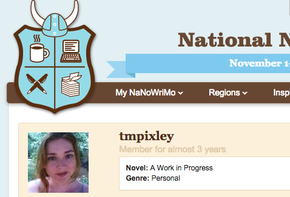 It's hard to find time to write these days, and I'm participating in "National Novel Writing Month" throughout the month of November. I've been working very hard keeping my two children alive. With chasing after my 14 month old and keeping up with all of my 12 year olds activities, my time to sit down and write is already very limited, so I will be restricting my writing to my novel until November ends. Thank you for your support and understanding. Feel free to harass me if you notice me posting on Facebook, writing unnecessary texts or emails and other activities that indicate that I'm slacking off when I should be working on my novel. I'll see you in December. :) Taymar I've just come back from a trip to help a friend recover from a nervous breakdown. While I was there I cooked dishes that I felt would help her to recover her health and wellness. These are a mixture of foods that I have learned to make from the GAPS diet, Nourishing Traditions as well as from my family and experience.
Here are directions to continue eating for wellness throughout her recovery. I am putting it here as a reference for my friend, as well as for other people who may need ideas to help with their own healing. Prescription for continued healing: Eat. Now is not the time to limit calories. The anxiety might feel like a tight knot in your stomach and you may have to force yourself to eat at times, but make sure you get enough to eat and drink. This will help to signal to your brain that you are safe and secure as well as giving you enough fuel to heal. For now, continue to avoid caffeine and sugar. As tough as this is, right now you only want to consume things that will help you to relax. Be kind and gentle with yourself. If you slip up and stay up later than you meant to, or cave in to a cup of coffee that is okay. These are guidelines to help you, not hard fast rules. Start the day off with a healing mantra: I am loved, I am secure, I am safe. Say it in your head or out loud while taking deep breaths and stretches. You are loved, you are secure, you are safe. Bone broth helps to heal the gut and is full of wonderful minerals and nutrients. Serve yourself up a small cup of bone broth and continue to sip on small cups frequently throughout the day. I've left you a big jar of bone broth in the fridge. Heat that up on the stove until it's nice and hot, transfer to a bowl and add a spoonful of sauerkraut or plain yogurt for probiotic support. Once the jar of broth is gone, you can make a perpetual chicken bone broth. Or you can make some more bone broth from the organic grass-fed beef bones in your freezer. My favorite bone broth recipes are from the Nourished Kitchen. Follow up your morning cup of bone broth with plenty of good fats and protein. A hard-boiled pasture raised egg is nice, you can slice it up with some avocado and sprinkle celtic sea salt on it. I'm getting hungry just thinking about it. Dark green leafy vegetables are full of healthy vitamins and minerals. Eating them in the morning with your egg and broth will jumpstart your day. Here is a recipe for quick leafy greens that makes a great snack or side dish for any meal of the day. Quick Greens Recipe* 1 generous handful of dark leafy greens (e.g. Kale, Swiss Chard, Spinach) 1 Tsp Grass-fed Butter 1/2 Tsp Lemon Juice (or just squeeze half a lemon) 1/2 Tsp Bragg's Amino Acids 1/4 Tsp Garlic Powder Sauté some combination of leafy greens in grass-fed butter. Sprinkle some bragg's amino acids, lemon and garlic powder on it for flavor. Don't overcook so that it's a mushy mess - as soon as it turns bright green you can turn the heat off. For extra yum: Add some chopped onions or diced garlic to the butter before you add the greens. Make it a salad: Soak raw red onion slices in a mixture of half lemon and half amino acids for 15 minutes, add to lightly sautéed greens and serve with assorted yummy salad ingredients like - cooked chunks of sweet potato, goat cheese crumbles, pine nuts, marinated mushrooms, etc. *A note about my recipes - I've put amounts here to make it more recipe-like, but I honestly never measure, I just add the amount that feels right. As you experiment with cooking this stuff you will discover the amounts that feel right to you. Liver is the powerhouse of food. Patè is a nice way to sneak in some liver. Spread it on a piece of gluten free toast or a sliced cucumber. Easy Chicken Liver Patè 1 lb Organic Chicken Livers 1/4 cup Goat Milk 2 tbsp Grassfed Cow Butter 1/2 Red Onion 1 tsp Diced Garlic or Garlic Powder 1 sprig each Rosemary, Thyme and Marjoram 1/4 Tsp Celtic Sea Salt 1/4 Tsp Fresh Cracked Pepper 1 Tbsp Chicken Bone Broth 1/4 Cup Goat Yogurt Directions: First soak the liver in goat milk for a few hours if you've got it. If you don't have time, even a few minutes will cut the tang of the liver down. Next drain out the goat milk and sautée the liver and onions in a teaspoonful of butter, adding in garlic, fresh herbs, salt, pepper and a splash of bone broth. Set it aside to cool. After it had cooled down for a few minutes I threw it all in the blender, added the yogurt and puréed it. I transferred this into a glass bowl and stuck it in the fridge. It should be good for 2-3 weeks in there, but hopefully you'll eat it well before that. |
Archives
April 2022
AuthorSince becoming a mom to a little boy with Trisomy 21 I have written a lot about Down syndrome and disabilities. I am a storyteller, wife and mom to a teen and a toddler. Life is busy! Categories
All
|
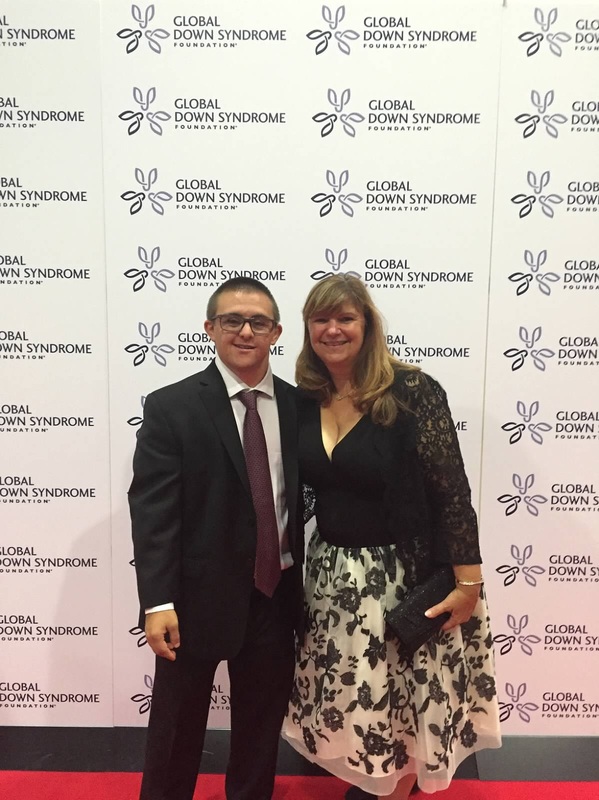

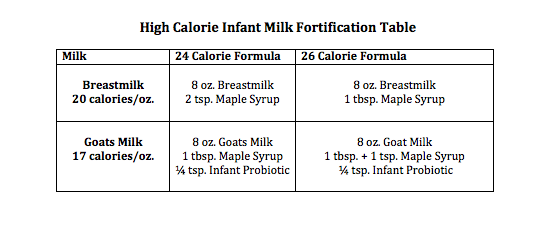
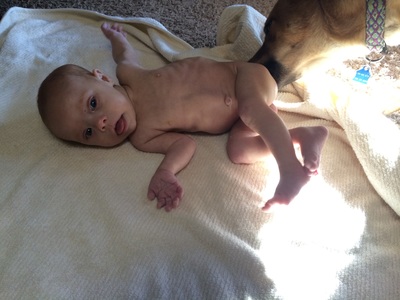
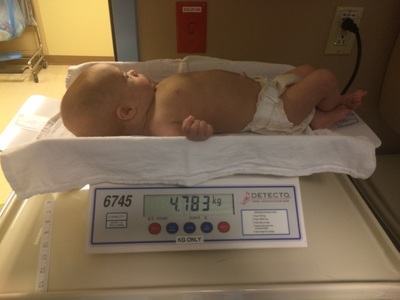
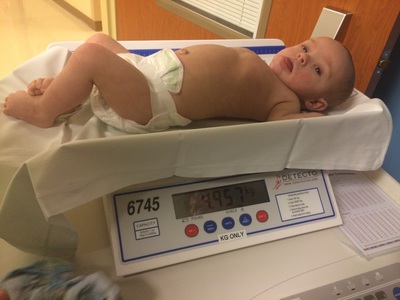
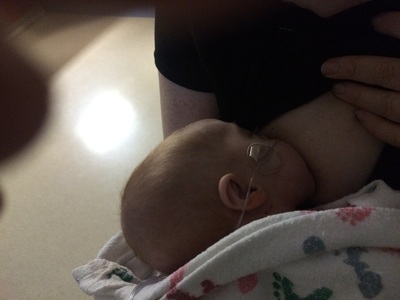
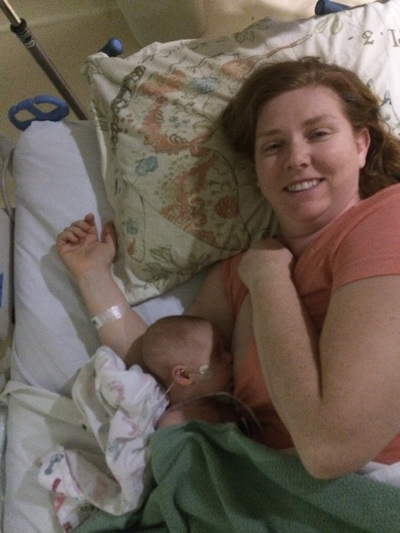
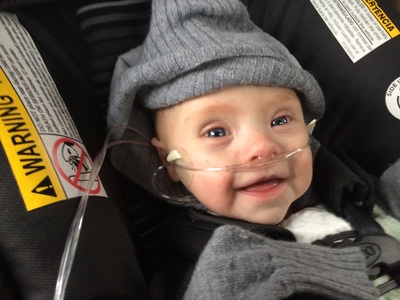
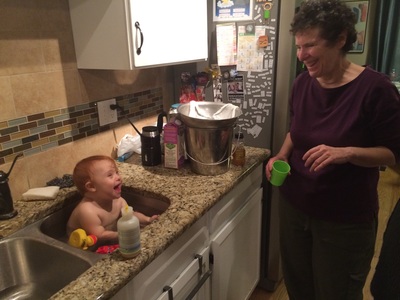
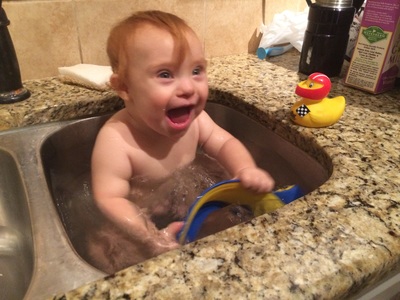
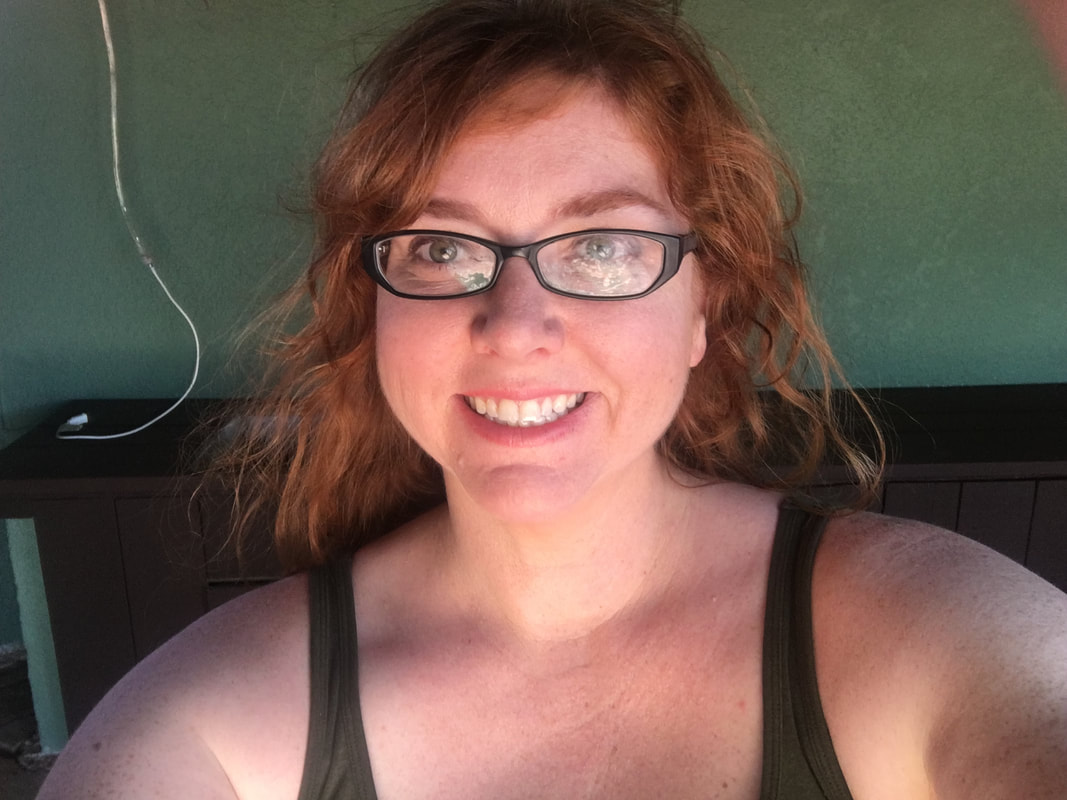
 RSS Feed
RSS Feed